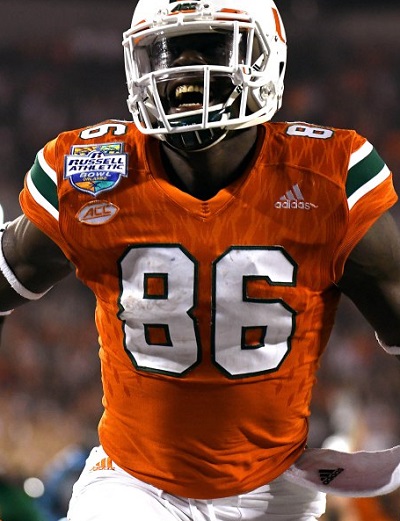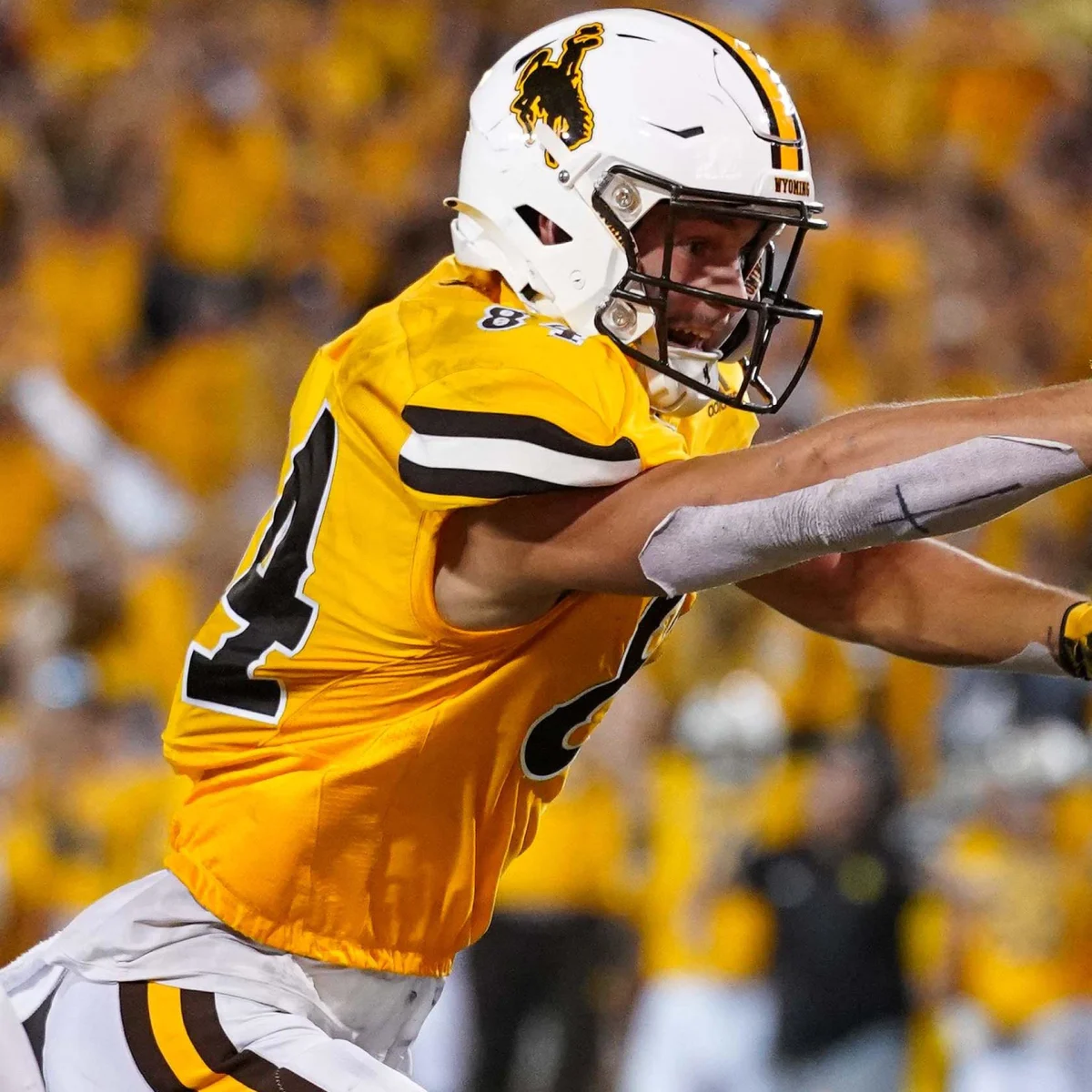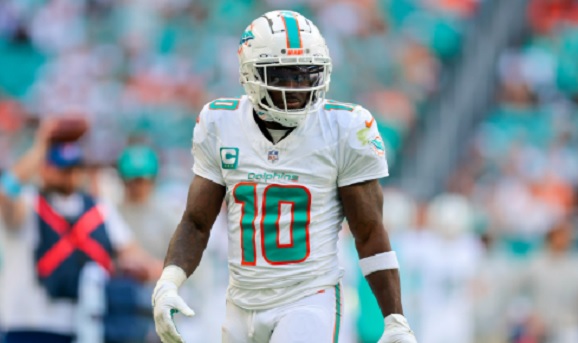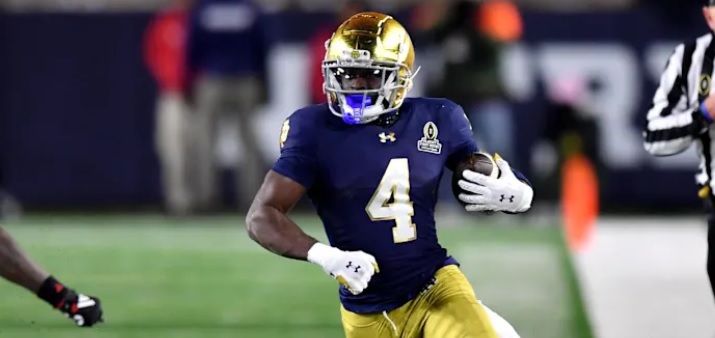 |
By Charlie Campbell
Weaknesses:
Summary: Miami has been known as “tight end U” because of all the great tight ends who the Hurricanes have produced. David Njoku is the latest in a line of athletic freaks to come out of the program, keeping up the tradition of Jimmy Graham, Greg Olsen, Kellen Winslow II, Jeremy Shockey and many more.
A mismatch receiving tight end is one of the most desired offensive weapons across the NFL. With a legit combination of size and speed, tight ends are very difficult to defend in the middle portion of the field and provide third-down and red-zone weapons for their quarterbacks. Thus, a tight end like Njoku is a rare find to fill a demand in a weapon that the NFL is looking for in 2017.
For his first year in Coral Gables, the Hurricanes redshirted Njoku as they had Clive Walford, who was a second-day talent for the NFL. As a redshirt freshman in 2015, Njoku notched 21 catches for 362 yards and a score. He broke out in 2016 as one of the best tight ends in the nation, totaling 43 receptions for 698 yards with eight touchdowns. Njoku would have put up more production if quarterback Brad Kaaya had been more consistent. Miami also split the tight end targets between Njoku and Chris Herdon IV. At the end of the season prior to their bowl game, West Virginia head coach Dana Holgorsen said of Njoku, “He is the biggest and baddest dude we have faced all season.” With Njoku’s freaky skill set, it is easy to see why Holgorsen thought that.
As a receiver, Njoku is a real weapon. Naturally, he is just extremely athletic and a fast tight end to get downfield quickly. He often burned man coverage and presents a big target while finding soft spots in zone coverage. Njoku has a big frame to box out safeties and phenomenal leaping ability with body control to make catches over defenders. Njoku’s athleticism and agility can be seen in a superb ability to adjust to the ball. He routinely bailed out Kaaya by contorting his body to passes off the mark to haul in receptions.
Linebackers have little chance of covering Njoku in man coverage as he is just too fast for them. Only elite NFL linebackers with great speed could cover Njoku. Safeties are too small to cover Njoku as he uses his body and leaping ability to make catches over them. Njoku is excellent with run-after-the-catch skills as he uses his size and power to routinely break tackles downfield. He also is such a twitched-up athlete that he would hurdle defenders trying to tackle him. Njoku has the speed to fly in the open field and is a threat to take receptions the distance. He should be a tremendous middle-seam tight end who produces big plays for his offense while also being a great red-zone weapon.
There are some things that Njoku should improve for the NFL. The primary thing is his route-running. He could be sloppy at times and has the ability to run better routes with fewer wasted steps. That will help to create more separation in the NFL. Along with his route-running, Njoku could stand to improve as a blocker. He has the size and strength to be a better blocker but will need to be coached up. Njoku has tons of athletic upside, and his flaws are very correctable. He is one of the younger players in the 2017 NFL Draft class and has a ton of potential for the NFL.
As a pro, Njoku could be a devastating mismatch weapon and one of the top receiving tight ends in the NFL. He should continue to improve and be a quality blocker, but probably will never be a bull. Njoku looks like a potential 10-to-15 year quality starter. In terms of his talent, he is deserving of mid- to late first-round consideration, and if he slips out of the first round, he’s a lock for Round 2.
Player Comparison: Vernon Davis. A lot of scouts have said that Njoku is a better version of Eric Ebron and have also compared Njoku to Davis. In my opinion, the latter comparison is a better fit. Davis was an athletic freak coming out of Maryland and has put together a good career with some excellent years for the 49ers and a bounce-back season with the Redskins. Davis and Njoku are almost identical in size with excellent speed and athleticism.
NFL Matches: Tennessee, Tampa Bay, Denver, Houston, New York Giants, Pittsburgh and Jacksonville
There are a lot of teams that could use tight end help, so Njoku could go in the first round or early in the second round. In the middle portion to the back half of the first round, there are a lot of potential landing spots for Njoku. Perhaps the highest that he could hope to go would be the Titans at No. 18. They could use a tight end to pair with Delanie Walker, as Walker didn’t close out the 2016 season in great fashion.
Tampa Bay has wanted the two-tight end set to be a big part of its offense. Cameron Brate has turned into the secondary tight end, but Austin Seferian-Jenkins didn’t work out as the primary. Njoku could give the Bucs that primary weapon with a safety receiver for Jameis Winston.
The Broncos could use a No. 1 tight end, and Njoku would make a lot of sense for Denver. He could be a nice weapon for Paxton Lynch.
The Texans badly need a receiving tight end to pair with C.J. Fiedorowicz. Njoku would be an instant upgrade to the Houston offense. If the Texans don’t use this pick on a quarterback, Njoku could be in play for them.
Njoku could land in Pittsburgh as he might be the best player available if he made it to the Steelers at No. 30. Jesse James is just a backup quality tight end, while Ladarius Green had injury issues in 2016. Njoku would be an instant upgrade for the Steelers.
Early in the second round, the Jaguars could look to take Njoku as a replacement for Julius Thomas.
RELATED LINKS:
2017 NFL Mock Draft: Charlie’s | Walt’s
2017 NFL Draft Prospect Rankings
2017 NFL Draft Scouting Reports
2026 NFL Mock Draft - Feb. 12
NFL Picks - Feb. 9
Fantasy Football Rankings - Jan. 29
NFL Power Rankings - Jan. 26



